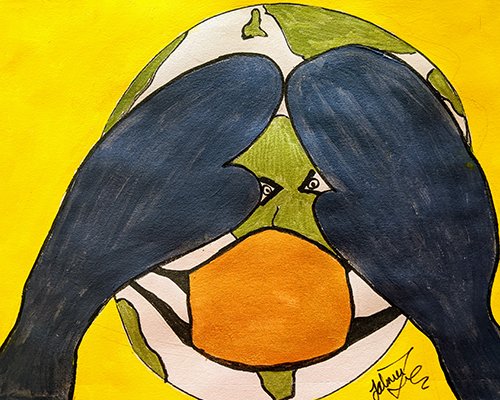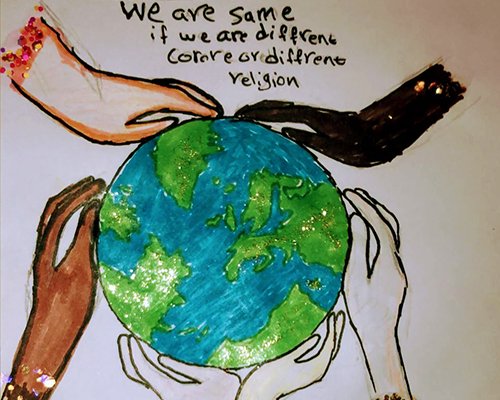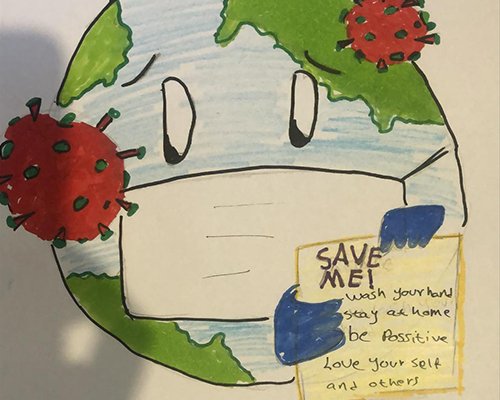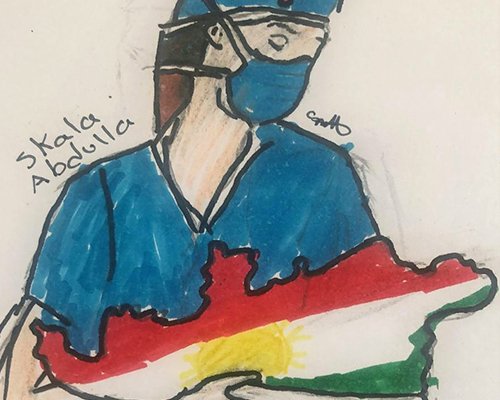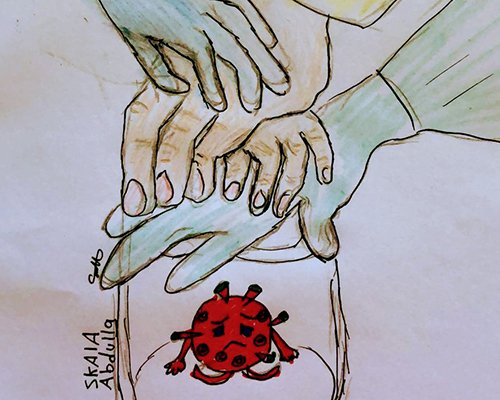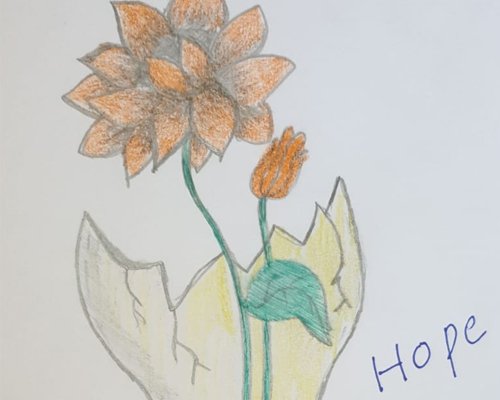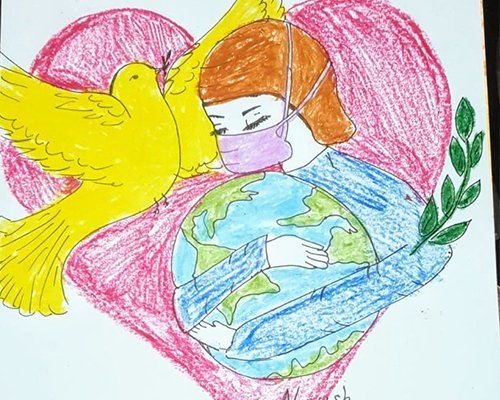A health worker cradles the flag of Kurdistan; an ochre flower blossoms in a cracked, broken vase; a red-headed woman in a face mask holds the world close.
These are the artworks created by refugee girls and women, in the UK and beyond, who have been trapped in severe isolation during the lockdowns to suppress the spread of COVID-19.
It’s the result of a project from ARTconnects for Global Solidarity — a grassroots group created in 2017 to lift up marginalised groups and promote peace, well-being, and tolerance — that has been hosting workshops during the pandemic to allow vulnerable women and girls across the world to connect and develop a sense of unity.
Salma Zulfiqar, the Birmingham-based founder and director of ARTconnects, has been hosting the sessions since April to help the women express themselves.
“Through a mixture of arts and conversation the participants have found common ground and belonging to help them deal with extreme stress and anxiety in their very complex and desperate lives,” Zulfiqar told Global Citizen. “It's been a creative lifeline.”
It offers a safe space for women to talk openly about how the pandemic has made a difficult life even harder for them — for example, through limited public health information, social distancing challenges, food poverty, homelessness, and the severe impact on mental health.
“We found out that the mental health impact on trafficked migrant women has been enormous as they continue to live in fear,” Zulfiqar added.
Bi-weekly sessions have included guests like the South Sudanese/Canadian rapper and former refugee Emmanuel Ja, and British actor Michael Simkins, from V for Vendetta and The Crown. Representatives from news groups like Al Jazeera International and CNN have also attended in an attempt to deconstruct harmful media stereotypes around migrants and refugees.
The award-winning project has even featured a cameo from Lord Alf Dubs, a former UK Labour MP who now serves in the House of Lords. Dubs himself is a former refugee who escaped Nazis when he came to Britain in 1939 via the Kindertransport programme, and has fought for Britain to accept more refugees in a political career spanning decades.
“You are powerful and have powerful voices,” Dubs said to the refugee women over Zoom.
🙏 @AlfDubs for sharing your invaluable experiences in ARTconnects for Global Solidarity #coronavirus#WomensRights#Equality#Diversityhttps://t.co/dH2ImeMEfY
— salma zulfiqar (@Salmszee) July 20, 2020
The women that have participated are based in the UK, US, Italy, Spain, Greece, South Africa, and Australia — although originally hailing from Syria, Iraq, Iran, Kurdistan, Afghanistan, and Pakistan. Some refugees from displacement camps have also joined in the sessions.
"These types of workshops should never stop — we have so many untackled issues that we are dealing with and this has really helped me,” said Pearlgin, an African LGBT asylum seeker based in the UK. “I also found out more about my rights: the right to education, the right to speak my mind, the right to get help from politicians. I am so grateful for this.”
Skala, a Kurdish asylum seeker, added: "These workshops helped me with my confidence and with my English. I was so depressed during lockdown. It really helped me and my sister a lot because we could not go to college to study either so we were isolated.”
Zulfiqar is looking for funding to continue the project. You can find their official Facebook page here.
Here are a few of our favourite artworks from recent sessions.
